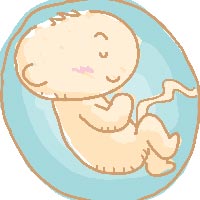What women have inspired you? What women have you inspired?
Every spring, the YWCA holds our three annual luncheons. This is a time when thousands of women from all walks of life gather to share a meal, a smile, a story or two and learn about the activities of the organization over lunch in Bellevue, Seattle, and Everett. Annually we are inspired by the stories of the women served by the YWCA.
Each year, a client or former client takes center stage to share her story of empowerment with the eagerly listening audience. The woman, who bravely tackled the task this year at the Seattle luncheon, is a two-time survivor of domestic violence. She spoke of the beatings endured by the hands of her former spouses. She elaborated on the emotional battering which occurred “for breakfast, lunch and dinner.” And, she shared her triumphant escape that included how she ended up living in YWCA housing.
The client speaker acknowledged the different services she’s received through the YWCA and the support she’s received from staff members and programs, including Women’s Health Outreach, Dress for Success, and WorkSource. She elaborated on how the staff nurtured and cared for her as she got back on her feet. In closing, as she fought back tears, she thanked the staff and let the crowd know that the tears were tears of joy and encouraged everyone to donate to the organization.
As I watched this now confident and strong woman stand before an audience of 2000 plus people and bravely share her story, I was not only motivated to keep doing my best as I try to empower others. I am committed to taking a little more time to listen and ask women, are they really okay?
When the audience settled themselves and dried their faces, award-winning actress Viola Davis graciously took the stage. Born into a life of poverty in South Carolina, she remembered being hungry, living with rats and being inspired by her younger sister to improve her quality of life. Throughout the time she spoke, she reminded people to be honest with themselves and their children. As she told her story, we learned about the racism and inequity she endured, as well as her own feelings of insecurity and sense of determination. I felt her passion for mothering, her commitment to family and her compassion for sisterhood as she told us to encourage one another and take care of ourselves.
As I glanced at the women at my table while she spoke, I noticed them leaning closer to one another, holding hands and sharing kleenex. Words like awesome, great and inspirational floated around the room as the event came to a close. Then, later that night as I curled up in bed reflecting on my day, the thing that came to me was this:
I may only be one woman and I may only be able to work with so many women in a day, but as long as I work with just one at least I will have done something. As long as I keep listening and seeking opportunities to help someone, I am doing something to help women along their journeys in life. And whenever I get a chance, I share the story of this luncheon and my personal story of survival, because I will never know who will benefit and be inspired.
Although Viola didn’t say it as she did in her role as housekeeper and nanny Aibileen Clark in the 2011 box-office hit “The Help,” I felt like she reminded us all that we “… are kind, … are smart and … are beautiful,” and that we should motivate one another!
Click here to learn more about domestic violence or here to connect with our domestic violence services. To reach the National Domestic Violence Hotline, call 1-800-799-7233 or visit www.thehotline.org. If you are in need of health, education, counseling, housing or employment services; contact the YWCA nearest you or visit us online.





